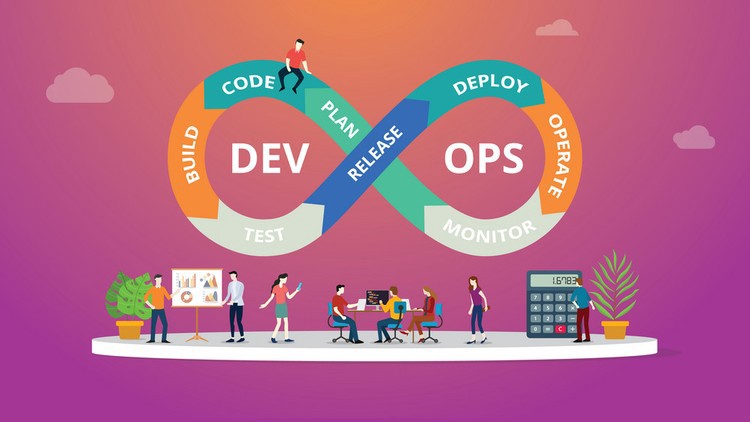Best Job Opportunities with DevOps Training

Introduction
In today’s fast-paced technological landscape, the integration of development and operations has become imperative for organizations striving to stay competitive. DevOps Training, a cultural and technical approach emphasizing collaboration, automation, and continuous delivery, has revolutionized software development and deployment practices. As businesses increasingly adopt DevOps methodologies, the demand for skilled professionals in this field continues to escalate.
This article explores the myriad of lucrative job roles awaiting individuals equipped with DevOps training, offering insights into the diverse career opportunities and pathways within this dynamic and rapidly evolving domain.
Job Roles with DevOps Training
In today’s dynamic tech landscape, DevOps has emerged as a pivotal approach bridging the gap between development and operations teams, fostering collaboration, and accelerating software delivery. As organizations increasingly adopt DevOps practices, the demand for DevOps Online Training in India continues to soar. A DevOps certification can unlock a plethora of lucrative job roles across various industries.
Let’s delve into some of the best job roles that await individuals with DevOps training.
1. DevOps Engineer
DevOps Engineers are the architects of the continuous integration and continuous delivery (CI/CD) pipeline. They streamline the software development process by automating build, test, and deployment workflows. DevOps Engineers possess expertise in tools like Jenkins, Docker, Kubernetes, and configuration management systems such as Ansible or Chef. Their role involves designing, implementing, and maintaining scalable infrastructure while ensuring reliability, security, and performance.
2. Site Reliability Engineer (SRE)
Site Reliability Engineers focus on enhancing the reliability and performance of IT systems. They apply DevOps principles to optimize infrastructure, minimize downtime, and mitigate incidents proactively. SREs utilize monitoring tools, perform capacity planning, and conduct post-incident reviews to refine system reliability continually. With their deep understanding of cloud platforms like AWS, Azure, or Google Cloud, SREs play a critical role in maintaining high availability and resilience.
3. Cloud Engineer
Cloud Engineers leverage DevOps methodologies to build and manage cloud infrastructure. They design scalable, cost-effective solutions on cloud platforms, ensuring seamless deployment and integration of applications. Proficiency in cloud services, infrastructure as code (IaC) tools such as Terraform or CloudFormation, and automation frameworks is essential for Cloud Engineers. They collaborate with development teams to optimize cloud resources, enhance performance, and facilitate rapid innovation.
4. Automation Engineer
Automation Engineers specialize in automating manual tasks across the software development lifecycle. They develop scripts, workflows, and tools to streamline repetitive processes, accelerating time to market and reducing human errors. Automation Engineers proficient in scripting languages like Python, Ruby, or Shell scripting, coupled with knowledge of infrastructure automation tools, are highly sought after. Their role extends to enhancing testing automation, configuration management, and deployment automation.
5. Security DevOps Engineer
Security DevOps Engineers combine security expertise with DevOps practices to embed security throughout the software development process. Furthermore, They conduct vulnerability assessments, implement security controls, and integrate security into CI/CD pipelines. Security DevOps Engineers possess knowledge of security frameworks, compliance standards, and security tools like SonarQube, OWASP ZAP, or Nessus. By championing a “security-first” approach, they safeguard applications and infrastructure from emerging threats.
6. DevOps Consultant
DevOps Consultants offer strategic guidance to organizations embarking on DevOps transformations. They assess existing processes, identify bottlenecks, and devise tailored DevOps strategies aligned with business objectives. DevOps Consultants possess strong communication and stakeholder management skills, along with hands-on technical expertise. They collaborate with cross-functional teams to drive cultural change, implement best practices, and optimize the delivery pipeline for maximum efficiency.
7. DevOps Manager/Director
DevOps Managers/Directors oversee the implementation and execution of DevOps initiatives across the organization. They define DevOps roadmaps, allocate resources, and measure key performance indicators to ensure continuous improvement. Moreover, DevOps Managers play a pivotal role in fostering a culture of collaboration, innovation, and automation within the organization. Their leadership ensures the successful adoption of DevOps practices, driving business growth and competitive advantage.
Conclusion
In summary, DevOps Certification Training opens doors to a myriad of promising career opportunities across diverse industries. DevOps, a cultural and technical strategy centered on collaboration, automation, and continuous delivery, has transformed software development and deployment procedures. Further, DevOps has evolved as a critical technique for bridging the gap between development and operations teams, encouraging cooperation, and expediting software delivery. Whether you aspire to be a hands-on practitioner or a strategic leader, the evolving DevOps landscape offers a wealth of rewarding job roles for individuals passionate about driving organizational success through continuous innovation and collaboration.









